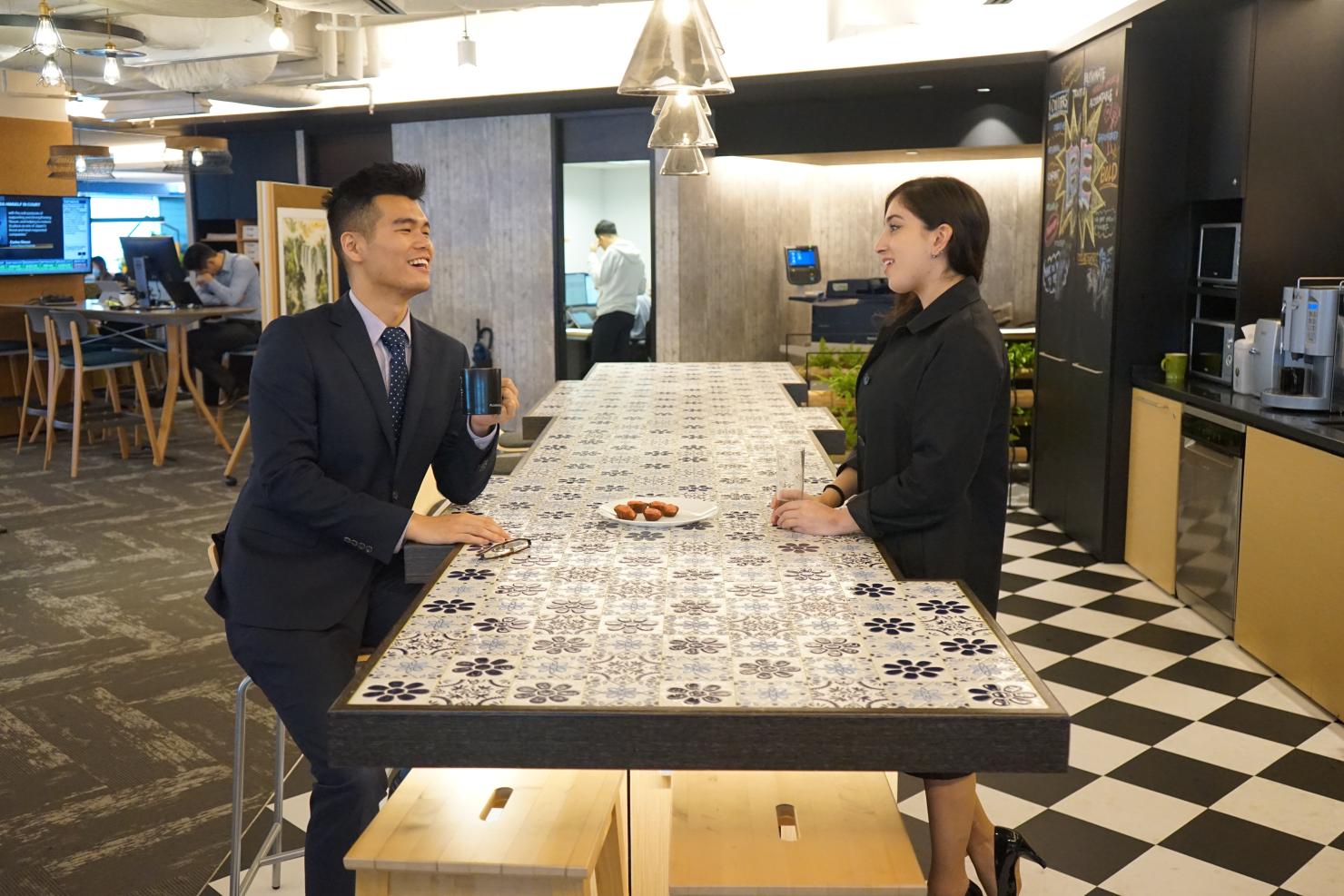Amanda Davenport needed a game plan.
She was working for a hotel chain when the COVID-19 pandemic began and knew things were about to get tough in her industry.
The Queenslander opted for a dramatic career pivot, leaving tourism and returning to university to undertake a Master of Commerce.
“Going into accounting, I wanted a very broad knowledge base that I could apply to different industries and to different roles,” Amanda says.
The move paid off.
Amanda has now secured an internship in Hong Kong. And not just any. It’s part of an annual program run by the Australian Chamber of Commerce Hong Kong (AustCham HK) and supported by the National Foundation for Australia-China Relations.
More than 50 companies with offices in the city take part in the program, targeting some of Australia’s brightest university students. For up to two months, the students are exposed to the inner workings of top-tier businesses.
In Amanda’s case, she’s working across a range of departments at QBE Insurance.
“Having this internship in a global company really translates around the world,” says Amanda. “I think that it will definitely help me stand out when I’m applying for other roles.”

Cross-cultural lessons in business
Given the pandemic, the internships are now conducted entirely online.
“There’s still so much engagement to be had, even though it’s through a digital medium,” says Reid Plehan, who took part in the program last year.
The Griffith University student landed his virtual internship at the Hong Kong office of the Queensland Government’s global business agency, Trade and Investment Queensland (TIQ).
“Being able to watch and be exposed to how some really high-level executives and members of government tailor their communications in order to bridge the culture gap between themselves and Chinese and Hong Kong-based investors was just incredibly invaluable,” he says.
When sitting in on client meetings, for example, Reid noticed how TIQ staff spent much of their first calls with Hong Kong and mainland Chinese investors building the ‘guanxi’ (connection)—a fundamental part of doing business in China.
Those insights helped Reid build the confidence needed to create his own connections throughout the region.
“I really made an effort to reach out to as many people as I could through the internship,” he says. “You’d be surprised how many of these high-level individuals are willing to have a discussion with young people. There wasn’t one person that I reached out to that said no to me.”
He says the fact everything was online didn’t hold him back.
“Even though it was digital, I was so impressed with how AustCham tried to engage us and give us many opportunities to take on extra learning,” says Reid.
For this year’s interns, that extra learning includes Chinese lessons from language company Mandarin One, while recruitment firm Ambition is running online workshops on topics such as the Hong Kong job market and business etiquette. An orientation day featured speakers from major multinationals including Uber and Teneo.

Building resilience in uncertain times
The program isn’t just about inspiring the interns.
“Oftentimes we would engage countlessly with different clients to try to gain their interest and gain their business, but because it was such a competitive market, a lot of times we would get rejected,” says Bobby Wen who was studying at the Australian National University when he undertook his internship at real estate company Colliers.
“Being able to face that rejection, not just give up, and try different approaches, really taught me about resilience and flexibility in the face of challenges,” he says.
Once his internship finished, Bobby became involved with AustCham Beijing where he worked as an associate for six months. He went on to manage the China Australia Millennial Project, helping to connect 100 Australian and Chinese young entrepreneurs on a journey to develop cross-border collaboration and innovation.
He’s since secured a position at one of the world’s big four consulting firms.
“The internship just broadened my horizons and made me realise it’s possible to have a life outside of working in Australia or working in the office,” Bobby reflects. “You can blaze your own path.”
Amanda Davenport is hoping her internship will allow her to do just that.
“With borders closed, it’s very difficult to get international experience,” she says. “So, the virtual internship is really important for me. I know that it will definitely give me confidence to apply for broader roles in future. It shows that the pathway is there.”

The AustCham Hong Kong virtual internship program is supported by the National Foundation for Australia-China Relations through our grants program. The Foundation is dedicated to creating a national platform that engages government, business and communities to support practical collaboration with China and engaging Australia’s diverse community in support of this.
